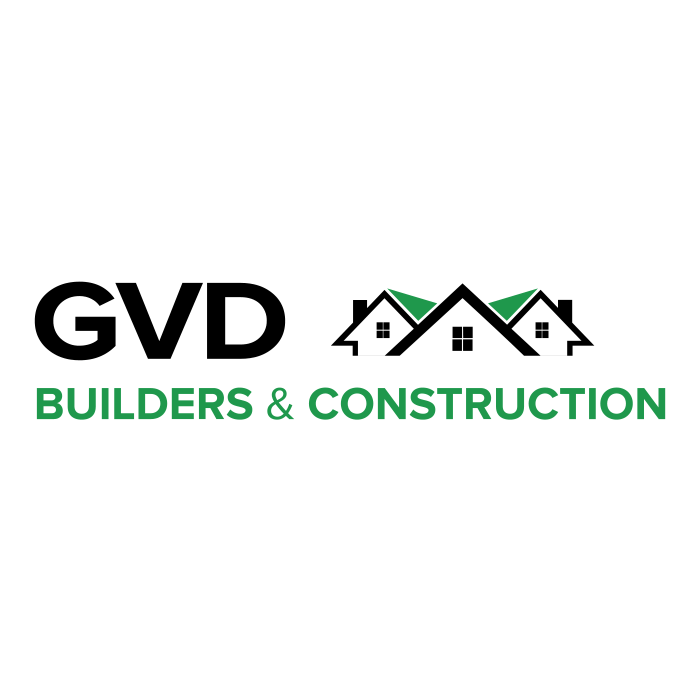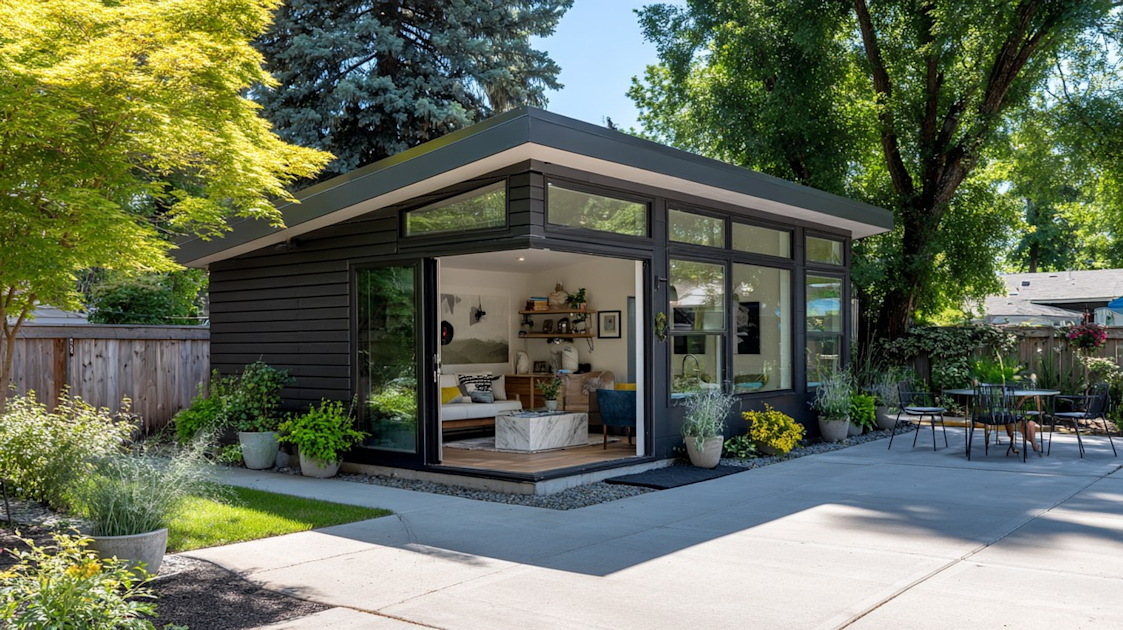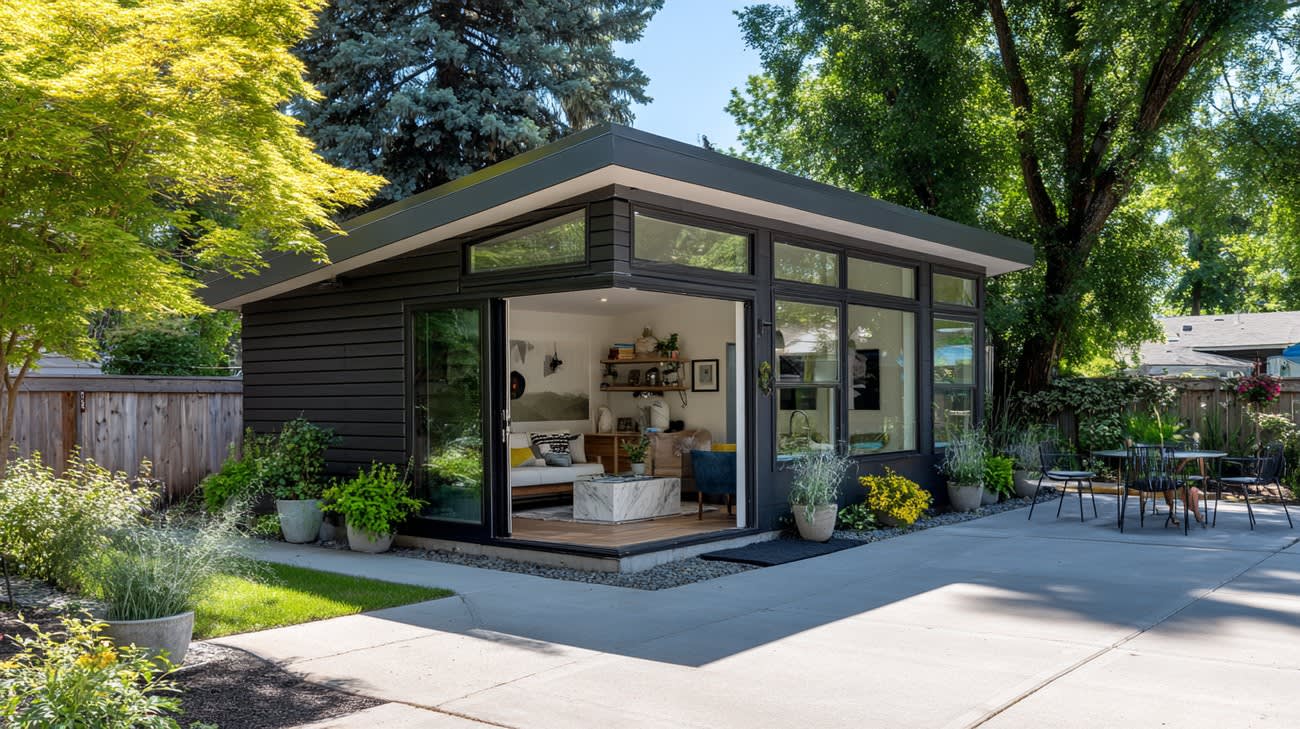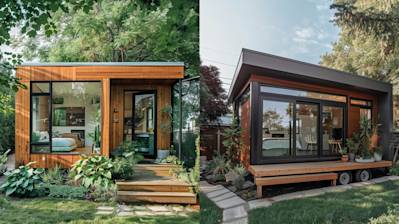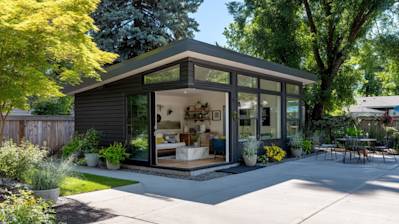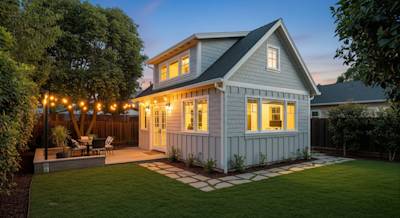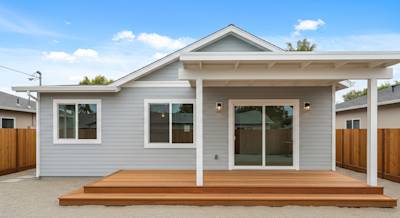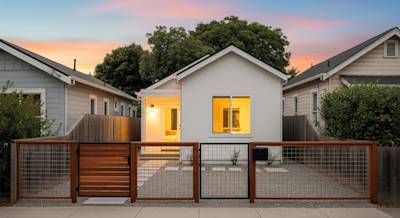Accessory Dwelling Units (ADUs) have become increasingly popular due to their versatility, potential for rental income, and ability to accommodate multigenerational living. As homeowners look to add ADUs to their properties, understanding ADU loans becomes crucial. This comprehensive guide will delve into the intricacies of ADU financing, providing insights into various loan options, requirements, and strategies for securing funding.
Understanding ADUs
An Accessory Dwelling Unit (ADU) is a secondary housing unit on a single-family residential lot. ADUs can be standalone structures, garage conversions, or even basement apartments. They offer several benefits, including rental income, increased property value, and flexible living options, which have contributed to their popularity.
The Rise of ADU Loans
As the demand for ADUs has grown, so too has the need for specialized financing options. Traditional home loans aren't always well-suited to ADUs due to their unique nature and zoning requirements. As a result, financial institutions have developed specific ADU loans to cater to this niche market.
Types of ADU Loans
1. Home Equity Loans
Home equity loans allow homeowners to leverage the equity built in their property to finance their ADU project. These loans typically offer fixed interest rates and are repayable over a set period. They can be an excellent option for homeowners with significant equity and stable income.
2. Home Equity Lines of Credit (HELOCs)
A HELOC functions similarly to a credit card, offering a flexible credit line based on home equity. With a variable interest rate, HELOCs allow homeowners to borrow as needed, making them ideal for ADU projects with uncertain costs or timelines.
3. Cash-Out Refinancing
Cash-out refinancing involves taking a new mortgage for a higher amount than the existing one, with the difference available as cash. This option can provide substantial funds for an ADU project, with competitive interest rates often lower than other loan types.
4. Personal Loans
While personal loans usually have higher interest rates, they don't require home equity as collateral, allowing a broader range of homeowners to access funds for ADU projects. However, these loans typically come with shorter repayment terms.
5. Renovation Loans
Some lenders offer renovation-specific loans, such as the Fannie Mae Homestyle Loan or the FHA 203(k) Loan, which bundle the cost of a home purchase and renovation. These loans can be used for substantial remodels, including adding an ADU.
Key Considerations for ADU Loans
Loan Amount and Costs
Understanding the full scope of your ADU project is essential. Prepare a detailed budget that includes construction costs, permits, utility connections, and potential landscaping or design fees.
Interest Rates
Interest rates can significantly affect the total cost of your loan. Shop around and compare offers to ensure you're securing the best possible rate for your financial situation.
Loan Terms
Consider the terms, including the repayment period and any penalties for early repayment. Longer terms can lower monthly payments, but may result in paying more interest over time.
Qualifying for an ADU Loan
Lenders assess several factors when evaluating an ADU loan application, including:
- Credit Score: A higher score can secure better interest rates and terms.
- Debt-to-Income Ratio: Lenders prefer applicants with a lower ratio, indicating financial stability.
- Equity: Homeowners with more equity may have access to larger loan amounts.
Documentation
Prepare the necessary documentation upfront to streamline the application process:
- Proof of income and employment.
- Detailed project plans and cost estimates.
- Property appraisal and deed of trust.
Steps to Secure an ADU Loan
Evaluate Your Financial Situation
Before applying for a loan, assess your current financial picture. Consider your monthly expenses, existing debts, and income stability to determine a comfortable repayment amount.
Research Lender Options
Explore different financial institutions, including banks, credit unions, and online lenders. Each may offer unique products or terms that suit your needs.
Prepare Your Application
Gather all necessary documents and complete the application process, providing as much information as possible to fortify your application.
Approval and Funding
Upon approval, review the terms and conditions carefully. Once satisfied, complete the loan agreement to begin receiving funds to kick off your ADU project.
Benefits of Financing an ADU
- Increased Property Value: ADUs often boost the value of the property, offering a significant return on investment.
- Income Potential: Renting out an ADU can provide a consistent source of income.
- Family Accommodation: ADUs create flexible housing options, ideal for elderly family members or adult children.
- Community Support: Adding housing in existing neighborhoods can help combat housing shortages.
Bullet List of ADU Loan Benefits
- Potential for rental income.
- Utilization of existing land without additional purchase costs.
- Contribution to solving housing shortages.
- Flexibility in accommodating extended family.
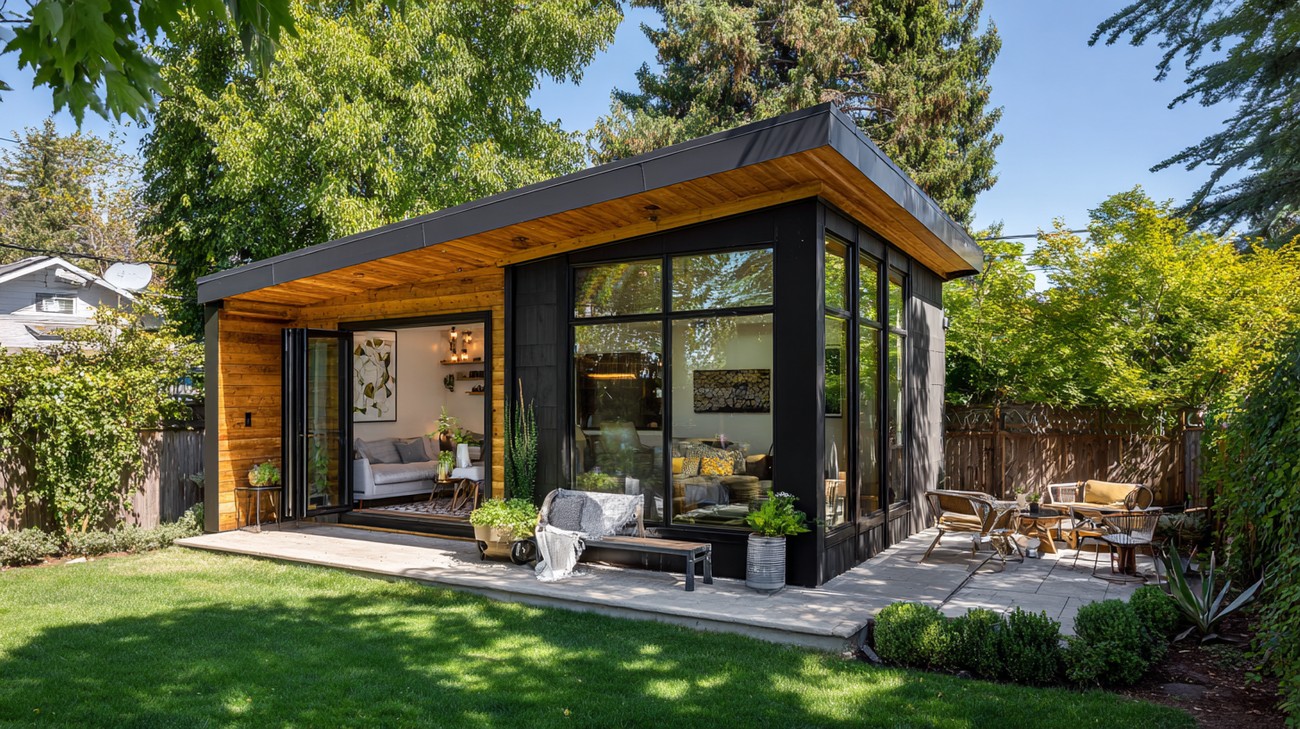
Frequently Asked Questions about Adu Loans
Are ADU loans different from traditional home loans?
Yes, ADU loans can differ from traditional home loans in several aspects. While traditional home loans primarily focus on purchasing or refinancing a single-family home, ADU loan products are designed specifically for building an accessory dwelling unit on your existing property. Unlike traditional mortgages, ADU loans may offer flexible terms that accommodate construction timelines and might be structured as short-term financing options until the completion of your building project.
Can I use a home equity loan to finance my ADU project?
Absolutely, a home equity loan can be a practical method for financing your ADU construction. By leveraging your home's equity, you can secure funds to build your ADU without tapping into personal savings. Home equity loans typically come with a fixed interest rate and are repaid over a specific period, making them a stable choice for financing ADUs. However, it's crucial to consider the potential risks, as your home is used as collateral, which emphasizes the importance of timely repayments.
What are the benefits of using an ADU loan?
Using an ADU loan offers various benefits, primarily allowing homeowners to expand their property’s living space without the immediate need for personal liquid cash. It can enhance your property value and provide additional income if you choose to rent out the unit. ADU loans can also be structured to match your financial capacity, providing flexibility throughout the construction process. Moreover, they can help you take advantage of any state or local incentives designed to encourage the development of accessory dwelling units.
Do ADU loans typically have higher interest rates?
Interest rates for ADU loans can vary depending on the lender and the type of loan product chosen. While some ADU loans might have interest rates similar to traditional mortgages, others, like construction loans, may have slightly higher rates due to the increased risk associated with new construction projects. It's wise to shop around and compare offers from different lenders to secure the best possible terms for your ADU financing needs.
Can I get an ADU loan if I have an existing mortgage?
Yes, having an existing mortgage does not necessarily prevent you from obtaining an ADU loan. However, your current mortgage terms and your home's equity will play significant roles in your loan approval. Lenders will assess your ability to manage additional debt alongside your existing mortgage commitments. Demonstrating a strong financial profile and sufficient equity can improve your chances of securing an ADU loan even with an outstanding mortgage.
Are there specific lenders who specialize in ADU loans?
Indeed, some lenders specialize in ADU loans due to the growing demand for accessory dwelling units. These lenders often have tailored loan products that cater specifically to ADU construction. It's beneficial to conduct thorough research and approach lenders with experience in this area. Specialized lenders can provide insights into local regulations and offer terms that make the process smoother and more efficient.
How does the ADU loan repayment process work?
The repayment of an ADU loan works similarly to other standard loans, involving monthly payments that include both principal and interest amounts. However, the specifics can vary based on the type of financing you select. If you opt for a construction loan, you might only make interest payments during the construction phase, with full repayment starting once the ADU is complete. It's essential to work closely with your lender to ensure you fully understand the repayment schedule and terms before committing to an ADU loan.
Can ADU loans be used for remodeling an existing structure?
Yes, ADU loans can sometimes be applied to remodel or convert existing structures, like a garage or a basement, into an ADU. This can be a cost-effective way of adding an ADU to your property without building from scratch. The key is working with your lender to understand whether your planned renovations qualify under their ADU loan programs. This option can offer a quicker turnaround and may be easier to approve since the underlying structure is already in place.
What should I consider before applying for an ADU loan?
Before applying for an ADU loan, numerous factors need consideration, such as your financial readiness, the feasibility of project plans, and your property’s zoning requirements. Start by evaluating your budget and determining how an ADU fits into your long-term financial goals. Check local zoning laws to ensure ADUs are permitted in your area. Consulting with financial advisors and real estate professionals can provide valuable insights and help you make informed decisions regarding your ADU project and its financing.

Cost Breakdown
When exploring ADU (Accessory Dwelling Unit) loans, it's important to understand the associated costs so you can better budget and plan. This section will delve into the typical price ranges, factors affecting costs, a comparison between budget and premium options, hidden costs to consider, and potential ways to save money.
Typical Price Ranges
The cost of constructing an ADU can vary significantly based on location, size, and design complexity. Typically, the construction of an ADU ranges from $100,000 to $400,000. Consequently, the amount you need to borrow via an ADU loan can vary just as widely. The loan itself might cover a spectrum from $80,000 on the lower end to upwards of $350,000 on the higher end. Many lenders require at least a 20% down payment, which can range from $16,000 to $70,000, based on the total loan amount.
Factors That Affect Cost
Location: Construction prices can vary significantly depending on your geographical area. Typically, urban centers and coastal locations like California can see higher construction costs, thereby affecting the loan amount needed.
Size and Type of ADU: The square footage and type of ADU (e.g., detached, attached, garage conversion) will influence the overall cost. Detached units are generally more expensive due to additional infrastructure needs.
Materials and Finish: High-end materials and fixtures increase the ADU's total cost. Standard finishes like laminate flooring or medium-grade cabinetry will cost less than premium options like hardwood or custom-made cabinetry.
Permits and Regulations: Local zoning laws and building codes can add costs through required licenses and permits, which typically range from $1,500 to $10,000.
Cost Comparison: Budget vs Premium Options
Budget Options: Budget ADU loans usually cover building materials of lesser quality, basic finishes, and minimal customizations. Costs might range from $80,000 to $150,000. This option is suited for those seeking a functional space without high-end features.
Premium Options: For those looking to maximize luxury and customization, premium ADU constructions could range from $200,000 to $400,000. These loans would cover high-quality materials, advanced energy-efficient systems, and custom architectural designs.
Hidden Costs to Consider
Site Preparation: If the land needs to be cleared or leveled, this can add significant costs, often ranging from $5,000 to $15,000.
Utility Connections: Connecting to local utilities such as water, sewer, and electricity can be an additional expense estimated at $10,000 to $30,000.
Landscaping and Exterior Work: Post-construction landscaping can add $3,000 to $10,000, depending on desired plantings and exterior features.
Unexpected Delays: Contingency funds (5-10% of the total budget) should be set aside for unforeseen expenses such as weather delays or material shortages.
Ways to Save Money
Research Grants and Incentives: Some local governments offer incentives or grants for building eco-friendly ADUs, which can help reduce costs.
Opt for Standard Designs: Using pre-designed plans can save on architectural costs. Many companies offer standardized designs suited for a variety of lot types.
Phased Construction: Consider building in phases, completing essential elements first and adding features like landscaping or extra fittings later as funds allow.
Negotiate Loan Terms: Shop around for the best loan terms and interest rates. Comparing options can save money over the life of the loan.
By understanding these cost aspects, you can make more informed decisions and more effectively manage your ADU project costs, ensuring your venture fits within your financial means while meeting your housing needs.

Standards & Regulations
Accessory Dwelling Units (ADUs) have become an increasingly popular solution for expanding living spaces. Financing ADU construction or renovations through loans calls for adherence to specific standards, regulations, and legal requirements. Understanding these can ensure compliance and potentially prevent legal or financial pitfalls. This discussion focuses on building codes, legal requirements, industry standards, permit requirements, compliance considerations, and warranty/insurance implications associated with ADU loans.
Relevant Building Codes
Building codes for ADUs often mirror those of primary residences but with specific adaptations reflecting their accessory nature. In jurisdictions like California, particularly under the California Building Standards Code, ADUs must comply with safety, health, and structural integrity guidelines. This includes adherence to fire safety, electrical, plumbing, and mechanical systems standards. Moreover, energy efficiency regulations under Title 24 apply, mandating energy-saving measures in design and construction.
Legal Requirements
The legal landscape for ADU loans varies significantly across jurisdictions. Many states, such as Oregon and Washington, actively promote ADU development with laws that streamline processes. In California, for example, recent legislation has eased zoning restrictions and allowed for more flexible financing options. It's crucial to ensure the property in question meets zoning laws and land use regulations, as illegal ADUs could void loans or lead to legal disputes.
Industry Standards
Industry standards for ADU loans and construction emphasize cost-efficiency and sustainability. Adhering to standards such as Leadership in Energy and Environmental Design (LEED) or ENERGY STAR for ADU projects is encouraged, focusing not only on compliance but also on enhancing property value and livability. Financial institutions may have specific lending criteria based on these standards, influencing loan approval and terms.
Permit Requirements
Securing necessary permits is a pivotal step in the ADU loan process. Typically, this includes building, plumbing, electrical, and mechanical permits. In many jurisdictions, like Los Angeles County, obtaining a Conditional Use Permit (CUP) may be necessary if the ADU doesn't conform strictly to current zoning ordinances. The process involves detailed project plans, fee payments, and inspections, which is crucial for loan disbursement and legality of the construction.
Compliance Considerations
ADU loans require compliance with both local and federal lending laws, such as the Truth in Lending Act (TILA) and the Real Estate Settlement Procedures Act (RESPA), ensuring transparency and fairness. Additionally, borrowers must verify that ADU construction aligns with the lender’s conditions, which may include scheduling assessments at different construction phases. Non-compliance could delay funding or incur penalties.
Warranty/Insurance Implications
Warranties and insurance for ADU projects affect loan agreements significantly. Builders typically provide a limited warranty covering workmanship and materials. From an insurance perspective, homeowners should extend their property insurance policies to encompass new ADU constructions, ensuring coverage for potential damages or liabilities. Lenders often require proof of insurance before closing the loan, safeguarding both parties.
In summary, navigating the landscape of ADU loans necessitates a thorough understanding of applicable standards, regulations, and legal requirements. Ensuring compliance with building codes, legal mandates, and industry norms, along with acquiring appropriate permits and insurance, is pivotal in securing and successfully managing an ADU loan. Awareness and adherence to these facets can mitigate risks, enhance investment returns, and contribute to the successful development of ADUs as versatile living solutions.
The content provided here is intended for informational purposes only and should not be considered professional advice. We recommend consulting with a qualified specialist before making any decisions related to your project. Pricing, product availability, and specifications are subject to change without notice. Any references to specific brands or products represent our opinions and do not constitute official endorsements or guarantees of performance.
